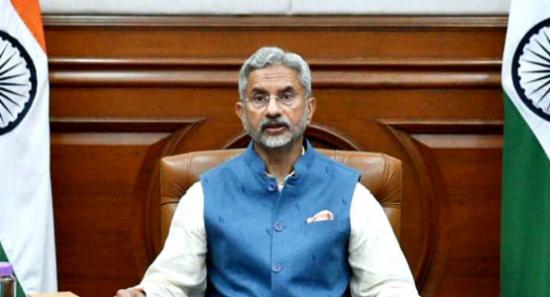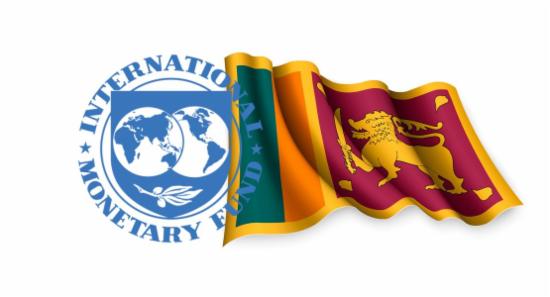.webp)
EXCLUSIVE VIDEO : Marine Piracy, An Invasion of Sri Lankan Waters
Delft (News 1st); Encroachments by Indian Fishermen on Sri Lankan waters and the plundering of its resources in the process has been a longstanding issue. Sri Lanka's northern seas were untouched for more than 03 long decades due to the civil war, and that allowed valuable marine resources to grow and multiply.
Against such a backdrop Sri Lanka'sMinister of Fisheries Douglas Devananda said that a proposal was submitted to allow Indian fishermen to venture into Sri Lankan Waters by issuing them permits for a price. Now, this has raised outrage among the Sri Lankan fishermen in the north, who claim that legalizing the illegal bottom trawling fishing method used by Indian fishermen would worsen the situation they face at present on a daily basis. A News 1st team comprising of Zulfick Farzan, Riyas Haris, Mahinda Gamage, and M. Mathivanan visited the deep seas in the North of Sri Lanka on Monday (12), to witness the illegal entry into Sri Lankan waters by Indian Fishermen. News 1st set out to sea from the island of Delft in the far north of Sri Lanka as radio chatter indicated a possible Indian fishing expedition invading Sri Lankan waters and according to the skipper of the small Dinghy boat the team used, the Indian fishermen invading Sri Lankan waters are directly threatening the lives of local fishermen. "On Mondays, Wednesdays, and Saturdays Indian fishing trawlers get closer to our maritime boundaries. So on those days, we don't set out to the sea. Our fishing nets are damaged and broken because of their trawlers, Against such a backdrop they are trying to give permits for the Indian fisherman to fish in our maritime boundaries," said the skipper. In addition, the invasion of Indian fishing trawlers that use the bottom trawling method drag all the marine resources including the coral at the bottom seas, destroying everything in its path. Bottom trawling is a method of fishing that involves dragging heavily weighted nets across the seafloor, in an effort to catch fish. It’s a favored method by commercial fishing companies because it can catch large quantities of product in one go. The problem with bottom trawling as a fishing method is that it’s indiscriminate in what it catches. When dragging the large, weighted nets across the seafloor, everything that happens to be in the way gets swept up in the net too. For this reason, bottom trawling has a large bycatch impact, with many non-target species being fished in the process. (Greenpeace) This has an impact on the biodiversity of the ocean, and also means many species are being fished to the brink simply as a consequence of commercial activities, not as the target of them. In addition to the turtles, juvenile fish, and invertebrates that get swept up in trawling nets, deep-sea corals are hidden victims of trawling. Deep-sea coral forests, thought to be some of the most biodiverse ecosystems with a high degree of endemism (species found only there), can take centuries to form. But when a trawler runs over them again and again to catch fish, they’re destroyed, and so is the whole community that had formed around them. News 1st went closer to the Sri Lanka India maritime boundary to witness first hand the Indian invasion. On one side of the border was Rameswaram in India and the other was Katchchaatheevu in Sri Lanka. The team waited in pitch darkness for more than five hours and decided to return back to the Island of Delft assuming that all hope of encountering Indian fishing trawlers, lost. And then all hell broke loose as we managed to locate two Indian fishing trawlers sitting silently in Sri Lankan waters 02 kilometers away from Delft Island, stealing valuable marine resources. These two massive boats immediately used evasive maneuvers to evade the News 1st crew who demanded the Indian fishermen switch on their lights, which they refused to oblige. The News 1st team did not give up the chase, as they were determined to drive the Indian fishermen out of the Sea of Sri Lanka, and eventually, the Indian fishermen were compelled to cut off their nets and escape back to Indian territorial waters. This was just one incident from hundreds that take place on a daily basis. According to local fishermen, if this continues and passes are given to venture into the Sea of Sri Lanka, the word 'FISH' will only be limited to a text on paper as the methods used by the Indian fishermen will destroy the Sri Lankan marine life. At a time when the world faces an unprecedented biodiversity crisis, methods of fishing that cause damage to such slow growing ecosystems can no longer be afforded. If we want to prevent more species from going extinct, or joining the growing IUCN red list we must take decisive action to restrict activities that are known to destroy and disturb vital ecosystems that support life on Earth. [embed]https://www.youtube.com/watch?v=Q4y3orHvCX4[/embed]Other Articles
Featured News





.png )










-819380_550x300.jpg)


-812087_550x300.jpg)
-810262_550x300.jpg)
















.gif)